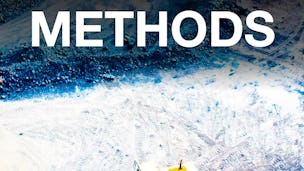Data Mining Project offers step-by-step guidance and hands-on experience of designing and implementing a real-world data mining project, including problem formulation, literature survey, proposed work, evaluation, discussion and future work.

Data Mining Project

Data Mining Project
This course is part of Data Mining Foundations and Practice Specialization

Instructor: Qin (Christine) Lv
4,354 already enrolled
Included with
29 reviews
Recommended experience
What you'll learn
Identify the key components of and propose a real-world data mining project.
Design and develop real-world solutions across the full data mining pipeline.
Summarize and present the key findings of the data mining project.
Analyze the overall project process and identify possible improvements.
Skills you'll gain
Details to know

Add to your LinkedIn profile
1 assignment
See how employees at top companies are mastering in-demand skills

Build your subject-matter expertise
- Learn new concepts from industry experts
- Gain a foundational understanding of a subject or tool
- Develop job-relevant skills with hands-on projects
- Earn a shareable career certificate

There are 4 modules in this course
This week provides you with a general introduction of the Data Mining Project course from the architect's perspective, focusing on the the initial brainstorming of project ideas which will prepare you for the rest of the course.
What's included
11 videos5 readings2 discussion prompts
This week discusses in detail what should be included in your project proposal and ends with an opportunity to craft your own.
What's included
7 videos1 assignment1 peer review
This week focuses in on checking the status of your project. After reviewing your project, you will take some time to incorporate the progress you've made with updates to your initial proposal.
What's included
3 videos1 peer review
This week discusses in detail the final project report, highlighting the importance of summarizing the key findings and analyzing the overall project process.
What's included
4 videos1 peer review
Earn a career certificate
Add this credential to your LinkedIn profile, resume, or CV. Share it on social media and in your performance review.
Build toward a degree
This course is part of the following degree program(s) offered by University of Colorado Boulder. If you are admitted and enroll, your completed coursework may count toward your degree learning and your progress can transfer with you.¹
Instructor

Offered by
Explore more from Data Analysis

University of Colorado Boulder

University of Colorado Boulder
Why people choose Coursera for their career

Felipe M.

Jennifer J.

Larry W.

Chaitanya A.

Open new doors with Coursera Plus
Unlimited access to 10,000+ world-class courses, hands-on projects, and job-ready certificate programs - all included in your subscription
Advance your career with an online degree
Earn a degree from world-class universities - 100% online
Join over 3,400 global companies that choose Coursera for Business
Upskill your employees to excel in the digital economy
Frequently asked questions
A cross-listed course is offered under two or more CU Boulder degree programs on Coursera. For example, Dynamic Programming, Greedy Algorithms is offered as both CSCA 5414 for the MS-CS and DTSA 5503 for the MS-DS.
· You may not earn credit for more than one version of a cross-listed course.
· You can identify cross-listed courses by checking your program’s student handbook.
· Your transcript will be affected. Cross-listed courses are considered equivalent when evaluating graduation requirements. However, we encourage you to take your program's versions of cross-listed courses (when available) to ensure your CU transcript reflects the substantial amount of coursework you are completing directly in your home department. Any courses you complete from another program will appear on your CU transcript with that program’s course prefix (e.g., DTSA vs. CSCA).
· Programs may have different minimum grade requirements for admission and graduation. For example, the MS-DS requires a C or better on all courses for graduation (and a 3.0 pathway GPA for admission), whereas the MS-CS requires a B or better on all breadth courses and a C or better on all elective courses for graduation (and a B or better on each pathway course for admission). All programs require students to maintain a 3.0 cumulative GPA for admission and graduation.
Yes. Cross-listed courses are considered equivalent when evaluating graduation requirements. You can identify cross-listed courses by checking your program’s student handbook.
You may upgrade and pay tuition during any open enrollment period to earn graduate-level CU Boulder credit for << this course/ courses in this specialization>>. Because << this course is / these courses are >> cross listed in both the MS in Computer Science and the MS in Data Science programs, you will need to determine which program you would like to earn the credit from before you upgrade.
MS in Data Science (MS-DS) Credit: To upgrade to the for-credit data science (DTSA) version of << this course / these courses >>, use the MS-DS enrollment form. See How It Works.
MS in Computer Science (MS-CS) Credit: To upgrade to the for-credit computer science (CSCA) version of << this course / these courses >>, use the MS-CS enrollment form. See How It Works.
If you are unsure of which program is the best fit for you, review the MS-CS and MS-DS program websites, and then contact datascience@colorado.edu or mscscoursera-info@colorado.edu if you still have questions.
More questions
Financial aid available,

